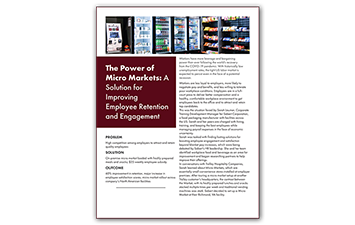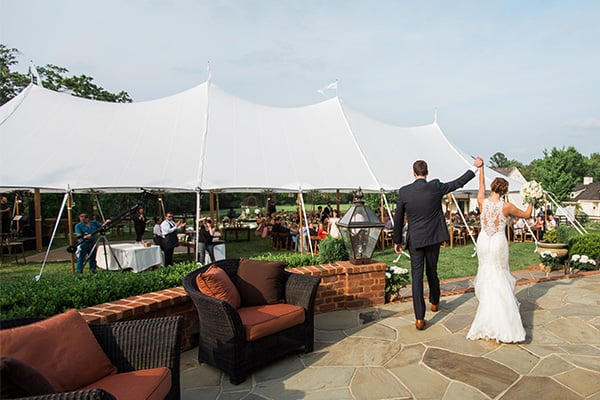A Guide to Tipping Wedding Vendors
Your wedding day is the happiest day of your life, but having to budget so much money for so many different things probably doesn’t make you super happy. While you’ve probably considered the main costs of your vendors, you may have neglected to take tipping into account. Here are some guidelines to take into consideration:
Double check your contract: Sometimes, companies include gratuity in your bill, so “it’s always important to look over signed agreements to see if tips are already included,” says Katie McGregor, owner of Rose Gold Events and Styling. The most common place to see this is with your transportation company if you’re using one, and sometimes your catering company.
Consider exceptional efforts: If a particular vendor went above and beyond their call of duty for you, you may want to give them a little more than you’d originally planned. Or, if your budget won’t allow for that, think about expressing your gratitude in an alternate way, such as a nice thank you postcard with a picture from your honeymoon. “A handwritten note and a great review on the website is always appreciated as well,” says Katie.
Put your tips together ahead of time: If you have your tips all ready to go prior to the wedding, it’ll be much more organized than trying to scramble for money the day off. Maggie Richard, owner of Maggie's Misc. Events, suggests putting each vendor’s tip into a separate envelope. “Give them to your wedding plan or coordinator to distribute towards the end of the night, or right before that specific service ends (such as your ceremony musicians).” By doing that, you have one less thing to worry about.
Where tips are expected versus where they’re optional: Though, as we stated before, tipping is not “required,” there are certain vendors who will be expecting a tip, and others who will consider it more of a bonus. We’ve outlined below which of them will expect a tip, and which will appreciate a tip if you’re able.
Expected:
Delivery: Slip a few dollars to any person delivering important items (flowers, tables/chairs, cake, etc.) on your wedding day. $5 - $10 dollars will be sufficient.
Set-up and tear-down staff: If you’ve hired people to set-up or tear-down elements of your wedding, plan on tipping them. Also consider vendors an additional tip for vendors who have to carry in and set up heavy equipment. “It’s tough work to do all that heavy lifting, so giving vendors who have physical labor to do in addition to the service they provide, like DJs who have large speakers and other accessories to set up and breakdown, will really appreciate an extra tip for the hard work,” adds Maggie. Generally, $15-$50, varying based on the amount of physical labor involved, is standard.
Transportation: As stated before, sometimes tip is already included in the transportation bill, but if it is not, 15-20% of the total bill, divided between the number of drivers, is acceptable.
Hair/ make-up: Tip whoever is doing your wedding party’s hair and make-up just as you would in a salon - 15-20% for each stylist, based on the work they individually do. Consider giving a few extra dollars if you or a bridesmaid requests a redo. If this happens, they’re putting in extra work, so you should take that into consideration - especially if you love it on the second try!
Officiant: If you’re being married by a judge, clerk, or someone outside the church, generally a tip of $50-$200 is standard. However, “if you’re being married by a priest (or member of the clergy), a donation to the church of somewhere between $200-300 is a good rule of thumb” says Maggie. “Then, if you find that your officiant did an exceptional job, consider tipping them something in addition to your donation.”
Catering Staff: Unless a gratuity is included in your contract, the waitstaff, bartenders, and catering manager generally expect tips, just as your waiter in a restaurant would. Tipping 15-20% of the total food bill is the norm, and handing this to the catering manager to distribute evenly is the simplest way to handle it.
Optional:
Wedding Planner: While wedding planners do not normally expect tips, since they are present and working the entire day and in charge of many of the details, tips do not go unappreciated. The amount will vary based on your satisfaction and the size of the wedding, but $100-$200 dollars is about average.
Photographer: Since a large chunk of your budget generally goes towards the photographer, they don’t always expect to be tipped. However, like your wedding planner, they’re at your wedding for most of the day and “sometimes they’re lugging lots of equipment around, which isn’t always easy!” says Maggie. If you’re able to tip them, $100-$200 is great for the main shooter, and $50-$75 for each assistant.
Musician/ DJ: Again, your musicians or DJ will be at your wedding for a long period of time, and since they’ll be providing the majority of the entertainment at your reception, it’s a good idea to tip them. For a solo DJ, plan to tip $50-$150, and if you have a band, $20-$25 per member.
Knowing how much money to set aside for tips prior to your big day will enable you to stay within your budget and therefore reduce stress, which is always a good thing! Just keep in mind that while all of these are general guidelines, there are exceptions to every rule. For more tips and helpful articles, be sure to check out Katie's blog, as well as Maggie's site!
Photo and wooden sign courtesy of The Paper Walrus













